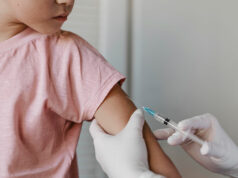THERE are many misconceptions regarding diabetes — a serious condition with severe effects that can last a lifetime — with some people thinking that certain foods or situations will immediately make them diabetics.
“Genetics and lifestyle are major causes of having diabetes. It should be taken seriously, but it’s important to remember that not everything you hear about diabetes is true. Learn the facts, so you can make knowledgeable decisions to prevent the disease,” says Dr. Nicky Montoya, president of MediCard Philippines.
Here’s a list of diabetes myths and corresponding facts provided by MediCard:
1. Myth: Diabetes is caused by eating too much sugar.
Fact: Weight gain is one of the risk factors in developing diabetes. A diet that is high in excess calories can be a cause of excess weight. Drinking sugary drinks such as sodas has been linked to excess weight, thus, increasing a person’s risk for developing diabetes. However it is not yet proven that too much sugar directly causes diabetes.
2. Myth: Women with diabetes should not get pregnant.
Fact: Women who manage their diabetes well can have a normal pregnancy and give birth to a healthy baby. But a woman with diabetes should keep her blood glucose (sugar) in the target range — both before she is pregnant and during pregnancy.
3. Myth: People with diabetes cannot donate blood.
Fact: Diabetics are eligible to donate blood as long as their sugar level is controlled, they are in good health, their blood pressure is below 180/100, and they are not anemic. On the day of the blood donation, they need to remember to eat an adequate meal, drink extra fluids, and avoid drinking caffeinated beverages. It is also advisable for diabetics to stay away from fatty foods, as it might affect some of the tests done to determine their eligibility for blood donation.
4. Myth: Diabetics should never consume alcoholic drinks.
Fact: Diabetics are advised to avoid drinking alcohol since it may lead to a major drop in blood sugar. However, according to some studies, one drink of alcohol is allowed once a week depending on one’s health conditions. It is recommended that a diabetic monitor his blood sugar before, during, and after drinking alcohol.
5. Myth: Diabetics should not eat rice.
Fact: All foods containing carbohydrates may affect diabetes. The key to maintaining good blood sugar levels and preventing long-term complications is getting the right amount of carbohydrates in one’s diet. Also, the quantity and quality of the rice a diabetic can consume always depends on the nature and degree of the diabetes.



